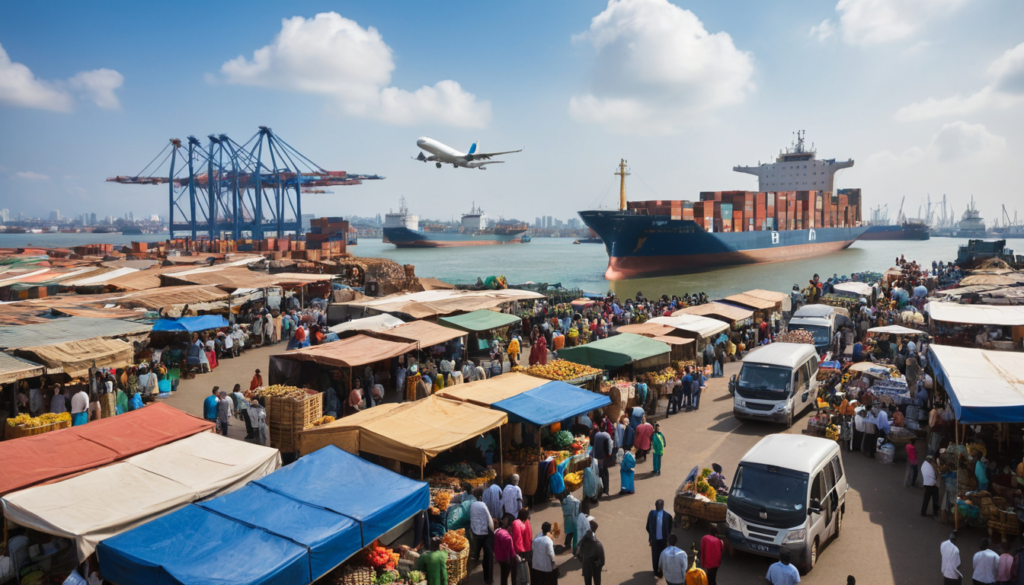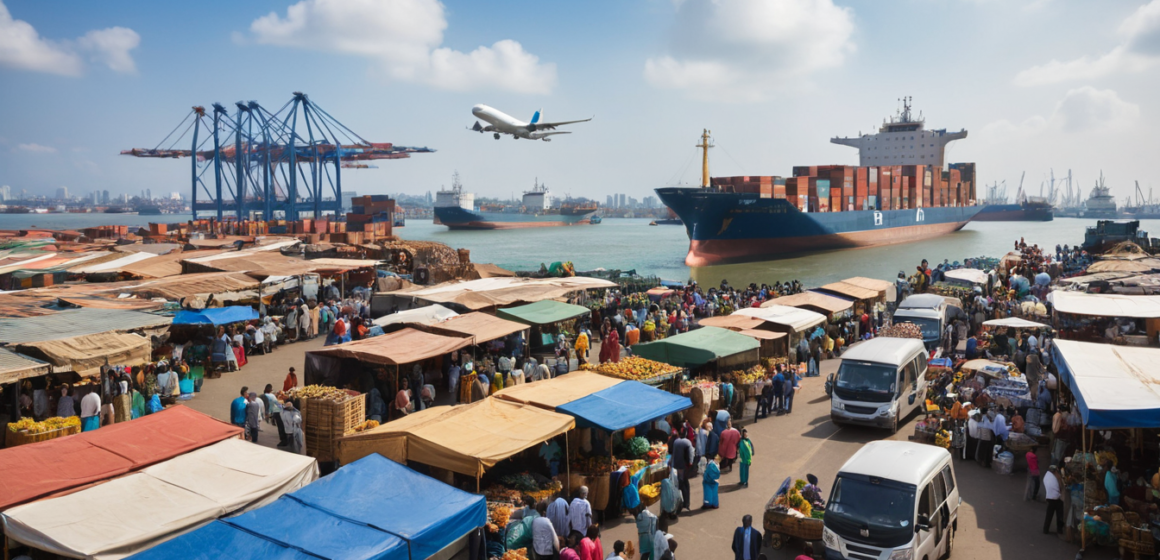International trade has become a cornerstone of the global economy, shaping industries and businesses at all levels. For local businesses, the interconnectedness of global markets can be both a blessing and a challenge. In this blog, we’ll explore how international trade affects local businesses, highlighting its opportunities and challenges, and offering insights for thriving in this dynamic environment.

Opportunities for Local Businesses
- Access to Global Markets International trade allows local businesses to expand their customer base far beyond domestic borders. A small artisan in a rural town can sell handcrafted products to customers across continents using platforms like Etsy or Amazon.Example: Indian textile businesses export traditional handloom fabrics to fashion designers worldwide, generating significant revenue.
- Diverse Supply Chains Access to international markets enables local businesses to source raw materials and products at competitive prices. This helps lower production costs and increases profit margins.Example: A coffee shop in the U.S. sourcing beans from Brazil benefits from both high quality and competitive pricing.
- Innovation Through Competition Exposure to international competitors drives innovation. Local businesses often adopt new technologies or improve processes to remain competitive, enhancing their offerings and efficiency.Example: Local clothing brands may incorporate eco-friendly practices inspired by global sustainable fashion trends.
- Partnership and Collaboration International trade fosters collaborations that drive growth. Partnerships with foreign suppliers, distributors, or even investors can help local businesses scale rapidly.Example: Tech startups often outsource software development to regions like Eastern Europe or South Asia to leverage expertise and cost efficiency.
Challenges Faced by Local Businesses
- Intense Competition One of the most significant impacts of international trade is the influx of foreign competitors. Local businesses often struggle to compete with larger, global brands that have economies of scale and marketing power.Example: Small retailers face stiff competition from global e-commerce giants like Amazon or Alibaba.
- Fluctuating Costs Exchange rate volatility and changes in trade tariffs can significantly impact pricing for raw materials and imported goods, adding financial uncertainty.Example: The U.S.-China trade war caused sudden tariff hikes, increasing costs for businesses reliant on Chinese imports.
- Compliance with Trade Regulations Navigating the complexities of international trade regulations, such as import/export licenses, customs duties, and standards compliance, can be daunting for small businesses.Example: Food exporters often face stringent quality checks and labeling requirements in international markets.
- Supply Chain Disruptions Dependence on global supply chains makes local businesses vulnerable to disruptions, such as the COVID-19 pandemic, which caused delays and shortages worldwide.Example: Automotive businesses relying on semiconductor chips experienced production halts during the pandemic.
Balancing the Impact: Strategies for Local Businesses
- Embrace Technology
- Invest in e-commerce platforms to reach global customers.
- Use tools like data analytics to understand international market trends.
- Focus on Niche Markets
- Offer unique products or services that cater to specific demands. This differentiation helps withstand competition.
- Form Strategic Alliances
- Partner with international suppliers, distributors, or local businesses to share resources and expand reach.
- Stay Agile
- Adapt to changing trade policies and market conditions by diversifying suppliers and creating contingency plans.
- Invest in Branding
- Highlight the authenticity and local charm of your business to appeal to both domestic and international audiences.
Conclusion
International trade has undoubtedly transformed the landscape for local businesses, offering unparalleled opportunities while posing significant challenges. The key to thriving in this globalized world is adaptability, innovation, and a clear understanding of market dynamics. Local businesses that embrace the opportunities of international trade while mitigating its risks can not only survive but also thrive on the global stage.




Leave a Reply